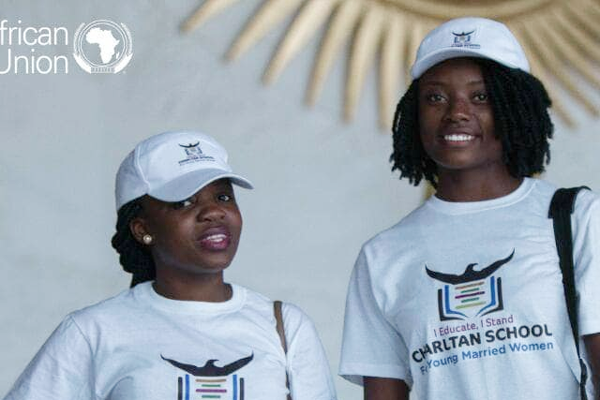
by Brandon T Ndemera
A number of girls who stopped going to school in order to marry are now benefiting from Charltan School, an initiative meant to educate girl brides.
The project is the brainchild of Development Studies students Charlene Vuta (24) and Tanaka Marowa (23) under Unicef’s Generation Unlimited Programme for Education in Africa.
It is an initiative that aims at dealing with the high levels of uneducated women who got roped into marriages as a result of many different contradicting factors.
Thirty-two percent of girls in Zimbabwe are married before the age of 18 and 4% are married before their 15th birthday.
“Our aim is to take back early married girls to school; to build a school which specifically focuses on these women in a manner that makes them self-reliant through employment creation and skills training and allow them to sustain their families and marriages respectively,” Vuta told Standard Style last week.
“We named the school after us; Charltan is a combination of Charl – for Charline; and Tan – from Tanaka.”
Since the initiative began early this year, it has had positive reception from the local communities, enrolling 15 women in Marondera, 35 in Epworth and a projected 35 for Kadoma when they start in July.
- Chamisa under fire over US$120K donation
- Mavhunga puts DeMbare into Chibuku quarterfinals
- Pension funds bet on Cabora Bassa oilfields
- Councils defy govt fire tender directive
Keep Reading
“We acquire projections before engaging a community. We already have 35 students in Kadoma who have pledged to enrol into our Kadoma class which is going to be opened next month,” Vuta said.
After winning the national Unicef Generation Unlimited contest last year, the duo put their idea into practice, using churches and renting out classrooms to lay the foundation for their institution.
Subjects offered include Maths, Science Commerce, English, Accounts, Shona, and Heritage Studies.
“We recently started to focus more on skills development for them such as digital skills, gardening, nutrition, entrepreneurship and financial literacy using a volunteering network system,” Vuta said.
The pair is appealing for support to fund their development plan and have their own infrastructure, to build a place where the children can play and learn as their mothers learn as well.
“We need more funding or just general school-related resources to help educate the women formally such as stationery with much focus on textbooks for now and hopefully our own space in the long run,” she said.
“We partnered with Ladder of Hope and Federation of Churches to extend our reach to these young women.”
Vuta and Marowa have represented Zimbabwe in Ethiopia marketing their project under the African Union programme.
“Whatever you want to do, it’s not going to be easy. Most times it will break you before it makes you. But as long as you keep trying, something somewhere is got to give,” she said.
Vuta said their long-term goal was to change the story of every uneducated early married girl or woman all over Africa.
“Generally we want to stop girls from entering into marriages because of family poverty,” she said.











